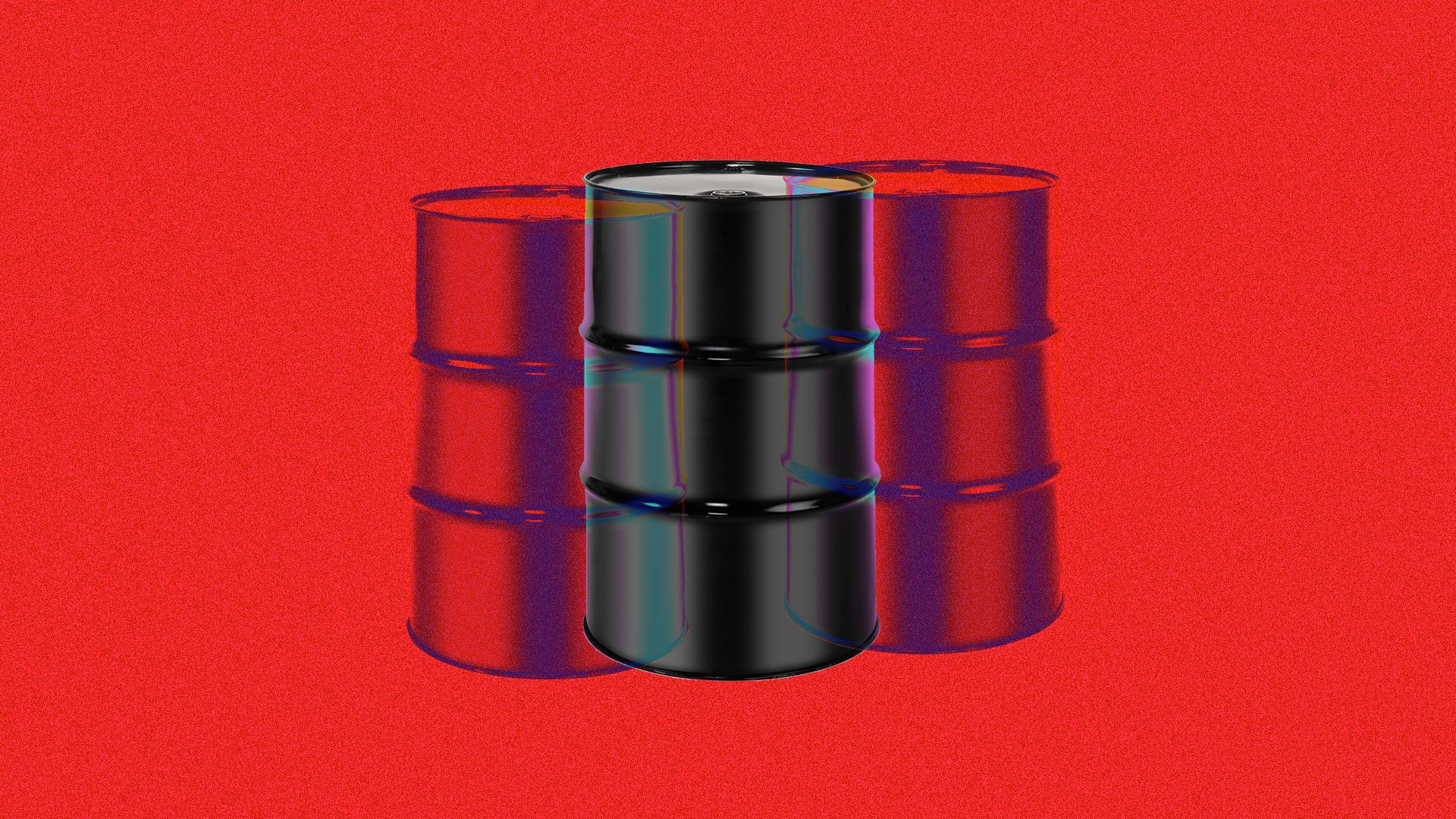As oil market recovers, Iran’s disruptions could continue
Add Axios as your preferred source to
see more of our stories on Google.

Illustration: Aïda Amer/Axios
Iran’s alleged attack on Saudi oil facilities was a dramatic escalation in its shadow war with the U.S. and a clear sign that Tehran’s previous strategy was not working.
The big picture: Since May, Iran has tried to counter U.S. sanctions by tormenting the oil market with small-scale attacks, such as placing mines on ships in the Persian Gulf. Its goal has been to drive oil prices higher and thus raise the costs of the U.S. “maximum pressure” strategy.
Where it stands: Iran's tactics left the oil market largely unfazed, for 2 main reasons:
- Oil supply is abundant, thanks especially to the rise of U.S. shale production. Saudi Arabia and Russia, two of the world’s largest oil producers, have curtailed their output precisely because there is too much oil on the market.
- Oil demand growth is slowing, with crude demand weighed down by fears of a global economic slowdown — driven in part by the U.S.–China trade war.
Between the lines: To get the world’s attention, Iran needed to make a bigger splash. That’s where the Saudi attacks came in: With a handful of drones and cruise missiles, Iran knocked more than 5% of global crude production offline in a matter of minutes.
What’s next: Iran will be closely watching next week’s meetings at the United Nations to see if its message has gotten through — specifically, whether any sanctions relief is in the cards.
- Iran does not want to go to war, but it may need to continue demonstrating its ability to disrupt oil supply — a recipe for more instability in the months to come.
Henry Rome is an Iran analyst at Eurasia Group. Robert Johnston is managing director for global energy and natural resources at Eurasia Group and a senior fellow at the Atlantic Council Global Energy Center.
Go deeper: Read more at the Atlantic Council’s New Atlanticist blog.

